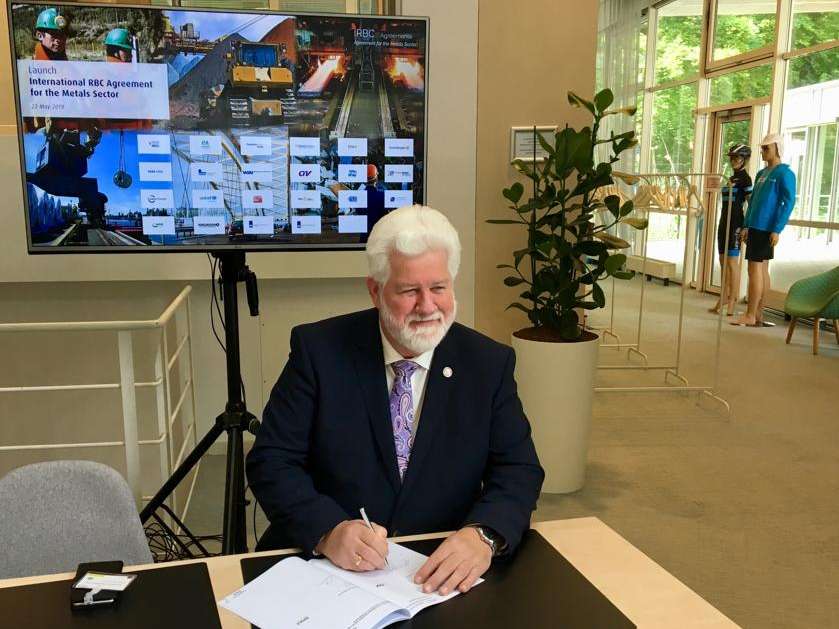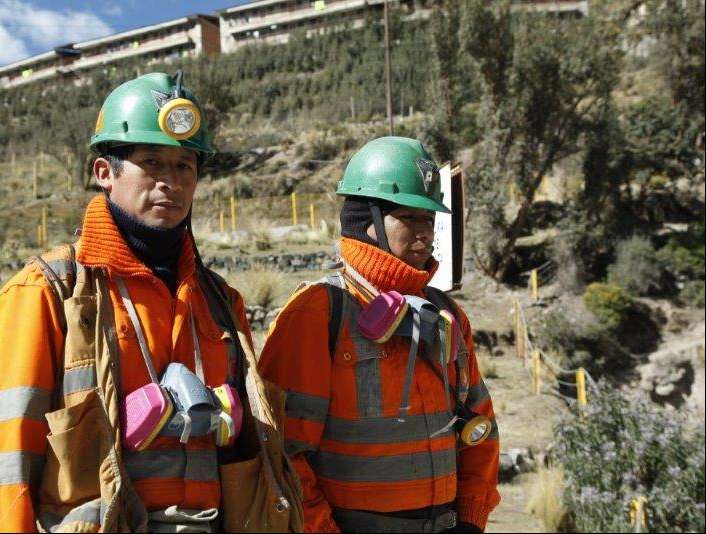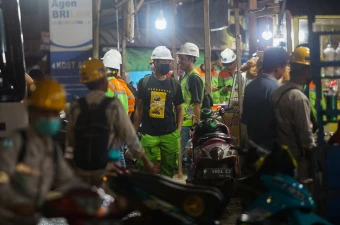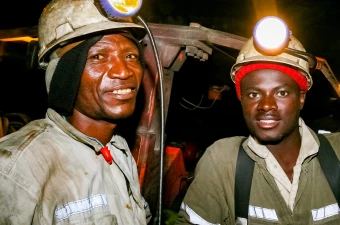Arend van Wijngaarden, chairman of CNV International: "The metal sector joins forces to counter the risks to man and the environment in the extraction and production of materials for the metal sector. With this covenant we make our contribution to international responsible business conduct (ed. IRBC)."
Companies, industry associations, government, trade unions and civil society organisations have signed the ‘International RBC Agreement for the Metals Sector: delivering Responsible Metals Supply Chains Together’ on 23 May.
The aim is to promote international responsible business conduct and to combat human
rights and environmental rights violations in the metals sector.

The agreement focuses on the long-term social and environmental effects in the metals
sector in relation to the sourcing of raw materials and the procurement of services.
Society increasingly expects companies to take responsibility for every aspect of their
production and supply chains. This requires joining forces and cooperating with other
stakeholders.
A joint approach makes it possible to tackle abuses collectively. In addition
to targeting issues within the Netherlands through the involvement of a Dutch industry
association, this is the first such multistakeholder agreement to also have international
backing thanks to the participation of a European industry association.
Limited transparency
Dutch companies in the metals sector often rely on the import of raw materials for their production processes. The RBC Sector Risk Analysis, carried out on behalf of the Dutch authorities, showed that the metals sector runs an increased risk of violating human rights, fundamental labour rights, and environmental and biodiversity standards and of having a negative impact on local communities. Moreover, transparency in the supply chains for many raw materials is limited. The Dutch metals sector also works with recycled metals. Using responsibly recycled metals helps to reduce the demand for primary raw materials and contributes to a circular economy. Metals companies also determined to identify areas for improvement in the metals recycling segment.
International guidelines
IRBC agreements are a means for the business community and other stakeholders to improve their performance with regard to international responsible business conduct. A number of companies are already in the process of identifying and addressing risks. Using the OECD guidelines for Multinational Enterprises, however, the sector has observed gaps in its approach to risk mitigation.
The agreement will also help the metals sector prepare for the EU Conflict Minerals Regulation, which will enter into force in 2021 and which obliges large importers to investigate the source of their raw materials. In addition, the Dutch government must adhere to the UN Guiding Principles on Human Rights and Business and the OECD Guidelines for Multinational Enterprises. Compliance with these international guidelines also supports progress towards achieving the UN Sustainable Development Goals (SDGs).

Workers of a poly metal mine in Peru, ready to start their shift.
Large sector, international agreement
The agreement specifically covers all metals and the entire international metals supply chain, including metals processing companies and end-users. Most of the Dutch metals supply chain
consists of SMEs. They supply base metals and semi-finished products to the automotive, construction, chemicals, aerospace, electronics and other industries for further processing. The supply chain is highly international in scope and includes metals recycling.
The agreement focuses on national and international metals companies with the aim of improving the visibility of the entire supply chain and maximising the impact of the participants’ collective activities.
Several Agreements
This is the ninth multistakeholder IRBC agreement in effect. It was preceded by agreements
in the garments and textile, banking, insurance, pensions, gold, food, natural stone and
forestry sectors. An agreement is also being negotiated for the floriculture sector.
Participants
The following organisations are parties to the metals sector agreement: Century Aluminum Vlissingen, Climax Molybdenum, trade union federation CNV, E-MAX Aluminium Profielen, Eurometaux, trade union federation FNV, Global March against Child Labour, Hunter Douglas Europe, IUCN Nederland, the Dutch Minister for International Trade and Development Cooperation, the Dutch State Secretary for Economic Affairs and Climate Policy, Tata Steel Netherlands, UNICEF Netherlands, Uzimet, Dutch Metallurgy Association VNMI and Wuppermann Staal Nederland.
They will have the support of Bettercoal, FME, International Tin Association, International Zinc
Association, Metaal Recycling Federatie, and Terre des Hommes. Giuseppe van der Helm served as the independent chairperson during the negotiations process. The Social and Economic Council facilitates the metals sector agreement in line with its 2014 advisory report on this subject.
More on this subject:
forestry sectors, including factsheets on CNV involvement
Publication date 23 05 2019


